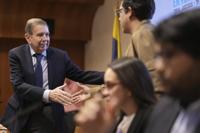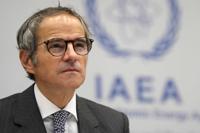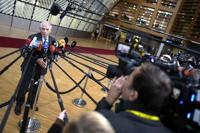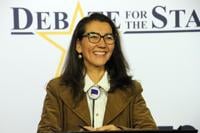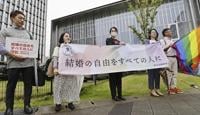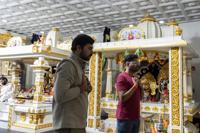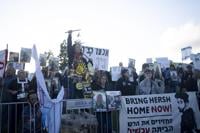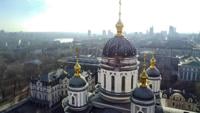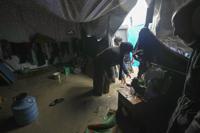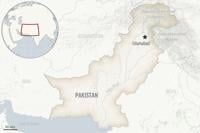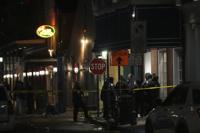MADRID (AP) — Venezuela’s political opposition on Tuesday signaled a shift toward a flexible timeline for a government transition that it had long insisted would come next month when the new presidential term is set to begin.
The change came as the faction’s candidate in the July presidential election, Edmundo �ҴDzԳ�á�����, remained in exile in Spain and its leader Maria Corina Machado continued to hide in Venezuela, both efforts meant to avoid arrest, with only 30 days left before Venezuela’s constitutionally mandated swearing-in ceremony.
The move underscores the challenges the opposition coalition faces to deliver on its promise to remove President Nicolás Maduro from office, even as dozens of nations back the faction's claim to victory and denounce the government for electoral fraud.
“On January 10, the one who is against the wall is really Maduro, not us,” Machado said via livestream during an event in Madrid, that highlighted the repression ruling party opponents have faced since the July 28 election. "When will that understanding really be reached and trigger the transition? It could be before, it could be on January 10, it could be after.”
Machado did not give details of the “terms of a negotiation” which she said the opposition has offered the government. But the faction has repeatedly said that a top priority is the release from prison of hundreds of people detained for being actual or perceived government opponents.
Venezuela’s ������ϲʹ������� Electoral Council, which is stacked with Maduro loyalists, declared him the election winner hours after polls closed. But unlike previous presidential elections, electoral authorities did not provide detailed vote counts.
Meanwhile, from 80% of the nation’s electronic voting machines, posted them online and said the voting records showed �ҴDzԳ�á����� won the election with twice as many votes as Maduro. The government ignored calls for transparency from inside and outside Venezuela, and instead, the ruling party-controlled ������ϲʹ������� Assembly sent Maduro an invitation for his swearing-in ceremony.
�ҴDzԳ�á����� after a warrant was issued for his arrest in connection with an investigation into the publishing of the vote tally sheets, while has been hiding for months at an undisclosed location, which she says is in Venezuela.
�ҴDzԳ�á����� again told reporters Tuesday that he is willing to return to Venezuela to take office. “I see myself assuming the position for which I was voted by the majority of Venezuelans on July 28,” he said without offering a timeframe.
Dozens of governments, including the United States, have recognized �ҴDzԳ�á����� as the election winner, but it is unclear whether Maduro and allies would allow him to enter Venezuela.
Anti-government protests erupted nationwide the day after the election, drawing repression from state security forces, which arrested more than 2,200 people, including political leaders, lawyers, poll workers, election volunteers and protesters, both minors and adults. Relatives of a few of the detained attended the event in Madrid and spoke of the conditions detainees face.
The arrests had a chilling effect across the country, with people carefully choosing what they say in public or on social media. The move also hit the opposition's capacity to summon thousands to the streets. Not a single massive rally has taken place since August, but Machado sought to quelch doubts about the strength of her movement, arguing that it continues to gain “more and more support” and characterizing the repression as the actions of a government “in a terminal state.”
“We were told that it was impossible for us to defeat the regime on July 28, and we did,” she said. “The voices that today want us to believe that it is not possible to enforce (the election’s result) will be wrong again. So, it is time to move forward firmly.”


